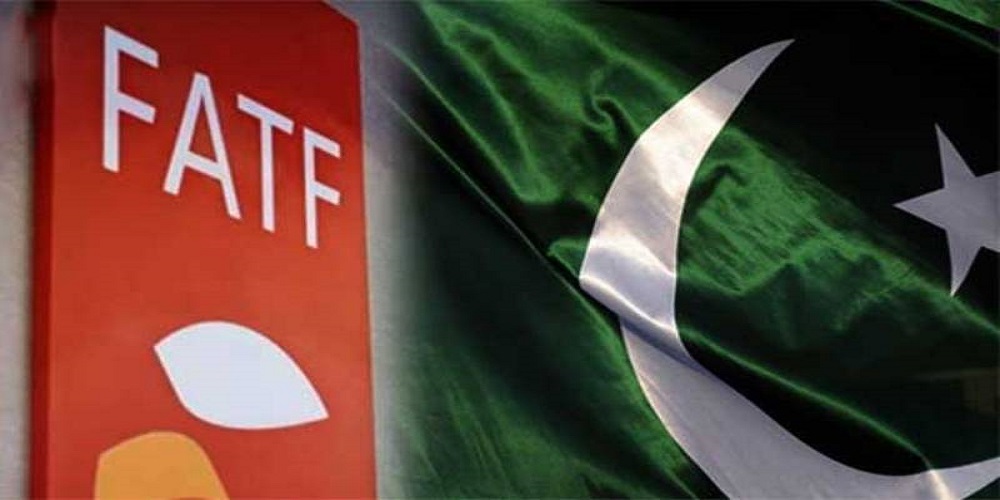The Financial Action Task Force (FATF) declared on Thursday that Pakistan will remain on the grey list.
A post-plenary conference is being addressed by President Dr. Marcus Pleyer. Pakistan remains on the “enhanced surveillance list,” according to Dr. Pleyer.
Pakistan has two concurrent action plans, according to the president, with a total of 34 action plan elements. He stated, “It has now handled, or mostly addressed, 30 of the items.”
Pakistan is making “excellent progress,” according to Dr. Pleyer.
The FATF conducted a meeting in Paris from October 19 to October 21, which ended today
As per reports, the task force reviewed the Asia Pacific Group’s report on Pakistan’s compliance with the watchdog’s prescribed action items.
It is pertinent to mention here that Pakistan has been on the FATF’s increased monitoring list, known as the grey list, since June 2018.
During the meeting, the global watchdog finalised key reports, including the revised guidance on virtual assets and their service providers, and discussed the next steps to strengthen its standards on transparency of beneficial ownership.
On Wednesday, State Bank of Pakistan (SBP) Governor Reza Baqir said that Pakistan has fulfilled 26 out of 27 conditions set by the FATF.
“Pakistan will be removed from the grey list shortly,” he predicted.
The global watchdog intended to update its pronouncements designating jurisdictions with strategic weaknesses in their efforts to combat money laundering and terrorism financing, according to the pre-meeting agenda published on FATF’s website.
Delegates discussed the findings of the FATF’s survey to identify areas where divergent anti-money laundering and counter-terrorist financing rules or their implementation cause friction for cross-border payments, which included the International Monetary Fund, the United Nations, and the Egmont Group of Financial Intelligence Units. The FATF is leading efforts to enhance cross-border payments, which is a G20 priority.
Pakistan is still being watched even more closely.
It should be remembered that the FATF voted on June 25 to maintain Pakistan on its grey list of nations. However, the organisation acknowledged Pakistan’s progress and attempts to address issues in its national action plan linked to countering terrorist funding, and encouraged it to keep moving forward and resolve “the one remaining CFT-related item” as soon as feasible.
The government was also given six new anti-money laundering areas to concentrate on.
FATF President Dr Marcus Pleyer told a press conference following the plenary meeting in Paris on June 21-25 that Pakistan will be under “enhanced supervision.”
“The Pakistani government has made significant progress in strengthening and improving its counter-terrorist financing mechanisms. It has mostly completed 26 of the 27 things on the action plan it pledged to in June 2018 “he stated
The proposal, according to Dr. Pleyer, focuses on terrorist finance concerns.
One major action item, he added, “concerning the investigation and prosecution of senior leaders and commanders of UN-designated terror organisations,” still has to be completed.
After the Asia Pacific Group raised concerns about Pakistan’s overall anti-money laundering and counter-terrorist financing system in 2019, the FATF president stated that the country has “made progress.”
“These measures include obvious attempts to raise awareness of Pakistan’s money laundering concerns in the private sector, as well as to create and exploit financial information to construct a case.”
This is why, according to Dr. Pleyer, the FATF has collaborated with Pakistan’s government on new areas that need to be improved as part of a new action plan that focuses primarily on money laundering concerns.
He said this involves expanding the number of investigations and prosecutions, as well as ensuring that law enforcement authorities throughout the world work together to track, freeze, and confiscate assets.
“This is about assisting authorities in preventing organised criminals from benefiting from their crimes and weakening Pakistan’s financial system and legal economy,” Dr. Pleyer explained.
